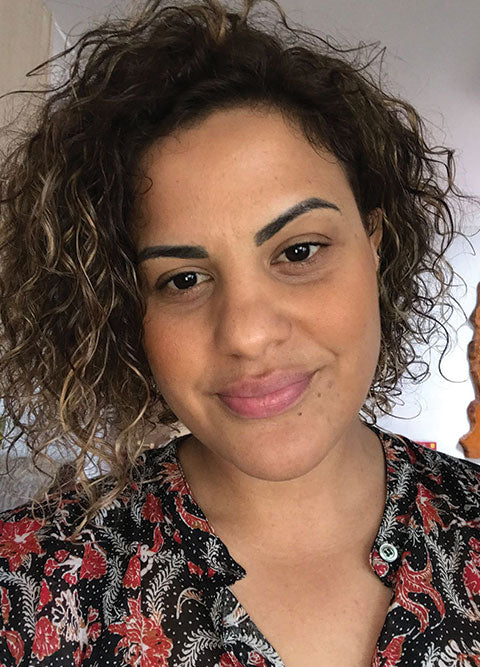
If this year has got you feeling stressed or anxious, you’re not alone. Here at Incu, we’re big supporters of raising mental health awareness among our team and community, and we pride ourselves on offering support and mental health services to our Incu family, which is why we’re partnered with the wellbeing support service, Benester.
Benestar has provided support to our own team, and so many others across Australia and the world for over three decades We had the opportunity to chat with Benestar’s team of clinicians about the services they provide, some of the mental health challenges that people are facing at the moment, and some helpful tips if you’re experiencing stress or anxiety.
Benestar has been providing wellbeing support services across Australia and internationally for over 30 years. We’re here to help you be your best you. Ultimately, we all want to be our best at work and in life. But sometimes we just need a little help or extra motivation to achieve it. That’s where we come in.
For us, it’s all about providing proactive support when and where you need us, for any aspect of your life – physical, mental, social and financial. One of our key pillars of service is confidential counselling, which provides short term, solution-focused counselling and coaching to deal with work and life issues. For Incu employees, this is a free service.

The current crisis may be the first time in some peoples’ lives that they are ever experiencing anxiety. Let’s start with the basics. What is anxiety?
Anxiety is a natural response to perceived threats. In most instances, anxiety keeps us safe! It stops us from taking risks and undertaking things that potentially might bring harm to us. Your brain is designed to send you signals, whether they are thoughts or physical symptoms when you perceive something as potentially harmful. Anxiety, however, becomes a problem when it starts to intensify, become too frequent and impact our daily functioning. Our anxious thoughts are not always accurate, and our perception of threats might not always reflect reality. It is therefore beneficial to be able to recognise when your otherwise natural anxiety becomes unhelpful.
During a pandemic when people’s physical health is a priority, mental health can seem to fall by the wayside. Talk us through why it’s so important to continue advocating for mental health awareness and care.
Research shows that mental health has a reciprocal relationship with physical health. For example, prolonged elevated stress affects our immune system. Furthermore, mental health issues, such as depression, are often associated with social withdrawal, inactivity and inadequate self-care. Given this reciprocal relationship, good mental health is vital for us to maintain so that we can remain happy, physically healthy, productive, and have good work and personal relationships.
COVID-19 has thrown a considerable spanner in the works for everyone. What advice would you give to those who are grieving the loss of plans or the loss of their sense of control?
We appreciate that this is a tough time for everyone; however, during times like this, we need to embrace psychological flexibility. Research shows that rigidity and excessive perfectionism are associated with poorer mental health. Psychological flexibility means that you still work hard to satisfy your core values, but able to accept obstacles and challenges that you face along the way. Furthermore, the practice of gratitude is effective for a lot of people. Rather than continue focusing on the loss, focus on the positive aspects of your current situation.

What advice would you give to those who are experiencing COVID-related anxiety and stress?
While the spread of the Coronavirus is a genuine concern, one which is being taken very seriously by public health authorities and governments worldwide, we will all benefit from being able to manage our feelings of anxiety. Anxiety must not be allowed to take control of our day-to-day life.
Some basic tips to manage your emotions and feelings through this time include;
- Accept uncertainty in this time.
- Seek out reliable information and news sources.
- Manage your self-care, including getting a good night sleep, eating well, and exercising.
- Use mindfulness to help manage any anxious feelings.
- Stay busy and active with the things you enjoy, learn a new skill or hobby, and keep your exercise up.
- Reach out for help.
Some people are feeling unmotivated and unproductive. What advice do you have for people to feel more balanced in their responsibilities?
We can become unmotivated and unproductive if we do not have structure. Setting SMART goals and routine have helped many people become productive during uncertain times. Furthermore, people need variety in their day-to-day. Ensure that you are not just being responsible, but also providing yourself with opportunities to rest and take part in pleasurable activities.
What are some tips for practising mindfulness?
Mindfulness is about training your attention to focus on the present moment. Mindfulness is not always synonymous to mediation and can take form in day to day activities. For example, you can practice mindful eating and mindful walking. A few tips to help you be present during an activity are to:
- Keep the activity simple
- Listen to the sounds around you.
- Pay attention to what you see.
- Notice your breath.
- Take time to experience the feel, this scent, or the temperature of your environment.
- Practice self-compassion and do not pressure yourself to do it “right”; as you start your mindfulness practice be patient with yourself and start small, gradually increasing the frequency and duration of your mindfulness activity.

Regarding having to isolate, it feels like we’ve suddenly had to put a halt on all social gatherings and activities. Is there any advice for people who may feel lonely and emotionally distant from not only their friends and family but also the regular social interactions we may take for granted each day?
Social distancing does not mean social isolation. Modern technology helps us to be connected more than ever before. Make a conscious effort to call and connect with your regular support network.
We’re hopefully about to begin returning to a more normal life slowly. Still, just like isolation was a shock to the system, some people are feeling anxious about returning to social life. Can you talk us through why people are feeling this way? How do you work through these feelings?
The human being is naturally risk-averse; uncertainties make us anxious. Because returning to social life is new and unknown territory for everyone, people tend to fill the blanks with their interpretations, often creating thoughts of “what if” and imagined catastrophes.
Therefore, when transitioning back to life before social distancing, it is vital to manage excessive anxiety, be well informed by reliable resources and continue to practice good self-hygiene.
If you need someone to talk to, call:
- Lifeline on 13 11 14
- MensLine Australia on 1300 789 978
- Suicide Call Back Service on 1300 659 467
- Beyond Blue on 1300 22 46 36
- Headspace on 1800 650 890
- QLife on 1800 184 527
Find Benestar at their website.


